-
Custom Aluminum Profiles from Argentina Samples | Shengxin
Explore aluminum profiles made from Argentina customer samples. Shengxin provides full drawing support and reliable manufacturing.Hot Tags : custom aluminum profiles for Argentina market aluminum extrusion manufacturer for Argentina customers Argentina sample-based aluminum profile supplier OEM aluminum profiles exported to Argentina
Read More -
Customized Big Size Aluminium Extrusion Profile Industrial Aluminum Heating Profiles
Anodizing is an electrochemical process that converts the surface of aluminum into a durable, corrosion-resistant oxide layer. The silver anodizing process gives aluminum profiles a sleek, metallic finish while enhancing their protective qualities. This treatment also makes the profiles more resistant to scratches, fading, and environmental damage.Hot Tags : Aluminum Profile china aluminum profile supplier aluminum heatsink window and door aluminium profile Aluminum Extrusion Profile Aluminium Profile Factory
Read More -
Customized Aluminium Profile for Sliding Glass Door Wardrobe Casement Door Aluminium Profile
Anodizing is an electrochemical process that converts the surface of aluminum into a durable, corrosion-resistant oxide layer. The silver anodizing process gives aluminum profiles a sleek, metallic finish while enhancing their protective qualities. This treatment also makes the profiles more resistant to scratches, fading, and environmental damage.Hot Tags : aluminum extrusion profiles
Read More -
Customized 6061 6063 Aluminium Profile to Make Door and Window
Anodizing is an electrochemical process that converts the surface of aluminum into a durable, corrosion-resistant oxide layer. The silver anodizing process gives aluminum profiles a sleek, metallic finish while enhancing their protective qualities. This treatment also makes the profiles more resistant to scratches, fading, and environmental damage.Read More -
Customized High Quality Silver Anodized Aluminum Extruded Profile for Doors and Windows
Anodizing is an electrochemical process that converts the surface of aluminum into a durable, corrosion-resistant oxide layer. The silver anodizing process gives aluminum profiles a sleek, metallic finish while enhancing their protective qualities. This treatment also makes the profiles more resistant to scratches, fading, and environmental damage.Hot Tags : Silver White Oxidation Aluminum Profile
Read More -
Custom Silver White Oxidation T Slot Aluminum Extrusion Profile
Anodizing is an electrochemical process that converts the surface of aluminum into a durable, corrosion-resistant oxide layer. The silver anodizing process gives aluminum profiles a sleek, metallic finish while enhancing their protective qualities. This treatment also makes the profiles more resistant to scratches, fading, and environmental damage.Read More -
Custom Aluminum Curtain Wall Cladding Cover Veneer for Building Facades Exterior Metal Wall Panels Aluminum Veneer
Aluminum veneer, also known as aluminum cladding or aluminum facade panels, refers to thin sheets of aluminum that are used to cover the exterior or interior surfaces of buildings. These panels are designed for architectural purposes, providing both functional and aesthetic benefits. Here are some key features and benefits of aluminum veneer:
-
Durability: Aluminum veneer is resistant to corrosion, weathering, and UV radiation, making it a durable choice for exterior applications.
-
Lightweight: Compared to other cladding materials like steel or concrete, aluminum veneer is lightweight, which makes it easier to handle and install.
-
Aesthetic Flexibility: Aluminum veneer panels can be coated with various finishes, colors, and textures, allowing for a wide range of design possibilities. They can mimic other materials like wood or stone, providing versatility in architectural design.
-
Energy Efficiency: When used in building facades, aluminum veneer can contribute to energy efficiency by providing insulation and reducing heat transfer. Some panels are designed with thermal breaks to improve their insulating properties.
-
Maintenance: Aluminum veneer is relatively low maintenance. It does not rust and can be easily cleaned with standard cleaning solutions.
-
Environmental Benefits: Aluminum is a recyclable material, and using aluminum veneer can contribute to sustainable building practices.
-
Fire Resistance: Aluminum veneer panels are non-combustible, adding an extra layer of safety to buildings in case of fire.
-
Applications: Common applications of aluminum veneer include office buildings, commercial complexes, residential buildings, and public infrastructure like airports and train stations.
Overall, aluminum veneer is a popular choice in modern architecture for its combination of durability, versatility, and aesthetic appeal.
Hot Tags : Aluminum Veneer
Read More -
-
High Quality New Design Metal Facade Wall Panels Aluminum Cladding Panels Aluminum Veneer
Read MoreAluminum veneer, also known as aluminum cladding or aluminum facade panels, refers to thin sheets of aluminum that are used to cover the exterior or interior surfaces of buildings. These panels are designed for architectural purposes, providing both functional and aesthetic benefits. Here are some key features and benefits of aluminum veneer:
-
Durability: Aluminum veneer is resistant to corrosion, weathering, and UV radiation, making it a durable choice for exterior applications.
-
Lightweight: Compared to other cladding materials like steel or concrete, aluminum veneer is lightweight, which makes it easier to handle and install.
-
Aesthetic Flexibility: Aluminum veneer panels can be coated with various finishes, colors, and textures, allowing for a wide range of design possibilities. They can mimic other materials like wood or stone, providing versatility in architectural design.
-
Energy Efficiency: When used in building facades, aluminum veneer can contribute to energy efficiency by providing insulation and reducing heat transfer. Some panels are designed with thermal breaks to improve their insulating properties.
-
Maintenance: Aluminum veneer is relatively low maintenance. It does not rust and can be easily cleaned with standard cleaning solutions.
-
Environmental Benefits: Aluminum is a recyclable material, and using aluminum veneer can contribute to sustainable building practices.
-
Fire Resistance: Aluminum veneer panels are non-combustible, adding an extra layer of safety to buildings in case of fire.
-
Applications: Common applications of aluminum veneer include office buildings, commercial complexes, residential buildings, and public infrastructure like airports and train stations.
Overall, aluminum veneer is a popular choice in modern architecture for its combination of durability, versatility, and aesthetic appeal.
-
-
High Quality Factory 6063 Kitchen Cabinet Profile Aluminum Cabinet Profile Aluminium Extrusion Profile
An aluminium profile is a versatile structural component made from aluminum. It is created by extruding aluminum through a shaped die to form a specific cross-sectional profile. These profiles are widely used in various industries due to aluminum's lightweight, strength, and corrosion resistance. Here are some key points about aluminium profiles:
-
Manufacturing Process: Aluminium profiles are produced through a process called extrusion, where aluminum billets are heated and forced through a die to create long pieces with a consistent cross-sectional shape.
-
Shapes and Sizes: Aluminium profiles come in a variety of shapes and sizes, including T-slots, channels, angles, tubes, and custom designs to meet specific requirements.
-
Applications: They are used in a wide range of applications, including construction (window and door frames, curtain walls), transportation (automotive parts, aerospace components), industrial machinery (frameworks, conveyors), and consumer goods (furniture, electronics).
-
Advantages:
- Lightweight: Aluminium is much lighter than steel, making it easier to handle and transport.
- Strength: Despite its low weight, aluminium has a high strength-to-weight ratio.
- Corrosion Resistance: Aluminium naturally forms a protective oxide layer, which enhances its resistance to corrosion.
- Versatility: The ability to extrude aluminium into complex shapes allows for a wide range of design possibilities.
- Recyclability: Aluminium is highly recyclable, which makes it an environmentally friendly material choice.
-
Surface Treatments: Aluminium profiles can undergo various surface treatments such as anodizing, painting, or powder coating to enhance their appearance, durability, and resistance to wear and corrosion.
Overall, aluminium profiles are essential components in many modern industries, providing a combination of flexibility, durability, and efficiency.
Hot Tags : Aluminium Profile for Windows
Read More -
-
Custom Different Colors and Surface Treatments Aluminum Extrusion Profile for Window and Door
Read MoreAn aluminium profile is a versatile structural component made from aluminum. It is created by extruding aluminum through a shaped die to form a specific cross-sectional profile. These profiles are widely used in various industries due to aluminum's lightweight, strength, and corrosion resistance. Here are some key points about aluminium profiles:
-
Manufacturing Process: Aluminium profiles are produced through a process called extrusion, where aluminum billets are heated and forced through a die to create long pieces with a consistent cross-sectional shape.
-
Shapes and Sizes: Aluminium profiles come in a variety of shapes and sizes, including T-slots, channels, angles, tubes, and custom designs to meet specific requirements.
-
Applications: They are used in a wide range of applications, including construction (window and door frames, curtain walls), transportation (automotive parts, aerospace components), industrial machinery (frameworks, conveyors), and consumer goods (furniture, electronics).
-
Advantages:
- Lightweight: Aluminium is much lighter than steel, making it easier to handle and transport.
- Strength: Despite its low weight, aluminium has a high strength-to-weight ratio.
- Corrosion Resistance: Aluminium naturally forms a protective oxide layer, which enhances its resistance to corrosion.
- Versatility: The ability to extrude aluminium into complex shapes allows for a wide range of design possibilities.
- Recyclability: Aluminium is highly recyclable, which makes it an environmentally friendly material choice.
-
Surface Treatments: Aluminium profiles can undergo various surface treatments such as anodizing, painting, or powder coating to enhance their appearance, durability, and resistance to wear and corrosion.
Overall, aluminium profiles are essential components in many modern industries, providing a combination of flexibility, durability, and efficiency.
-
-
Custom Different Colors Aluminum Extrusion Profile
Read MoreAn aluminium profile is a versatile structural component made from aluminum. It is created by extruding aluminum through a shaped die to form a specific cross-sectional profile. These profiles are widely used in various industries due to aluminum's lightweight, strength, and corrosion resistance. Here are some key points about aluminium profiles:
-
Manufacturing Process: Aluminium profiles are produced through a process called extrusion, where aluminum billets are heated and forced through a die to create long pieces with a consistent cross-sectional shape.
-
Shapes and Sizes: Aluminium profiles come in a variety of shapes and sizes, including T-slots, channels, angles, tubes, and custom designs to meet specific requirements.
-
Applications: They are used in a wide range of applications, including construction (window and door frames, curtain walls), transportation (automotive parts, aerospace components), industrial machinery (frameworks, conveyors), and consumer goods (furniture, electronics).
-
Advantages:
- Lightweight: Aluminium is much lighter than steel, making it easier to handle and transport.
- Strength: Despite its low weight, aluminium has a high strength-to-weight ratio.
- Corrosion Resistance: Aluminium naturally forms a protective oxide layer, which enhances its resistance to corrosion.
- Versatility: The ability to extrude aluminium into complex shapes allows for a wide range of design possibilities.
- Recyclability: Aluminium is highly recyclable, which makes it an environmentally friendly material choice.
-
Surface Treatments: Aluminium profiles can undergo various surface treatments such as anodizing, painting, or powder coating to enhance their appearance, durability, and resistance to wear and corrosion.
Overall, aluminium profiles are essential components in many modern industries, providing a combination of flexibility, durability, and efficiency.
-
-
Custom Aluminum Extrusion Profile Aluminum Handles Profile
aluminium handle refers to a handle made from aluminium. Due to its lightweight, durability, and aesthetic appeal, aluminium handles are widely used in various products and industries, such as furniture, doors and windows, kitchenware, and toolboxes. The advantages of aluminium make these handles highly desirable, offering the following characteristics:
- Lightweight: Aluminium is a lightweight material, making handles more convenient to use and reducing the overall weight.
- Corrosion Resistance: Aluminium has excellent corrosion resistance, meaning it doesn't rust easily and can be used in various environments.
- Aesthetic Appeal: Aluminium handles often undergo anodizing or coating treatments, resulting in smooth surfaces and a variety of color options, enhancing the product's overall appearance.
- High Strength: Despite being lightweight, aluminium has sufficient strength to withstand everyday use's pressure and load.
- Easy to Manufacture: Aluminium is easy to shape and process, allowing for the creation of handles in various shapes and designs to meet different design requirements.
Hot Tags : Aluminum handle Aluminium Profile Extrusion Suppliers
Read More




 English
English français
français Deutsch
Deutsch русский
русский español
español português
português العربية
العربية ไทย
ไทย Việt
Việt Українська
Українська

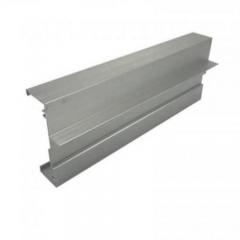
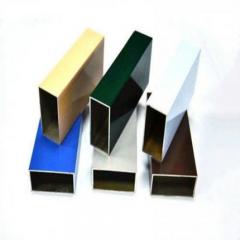
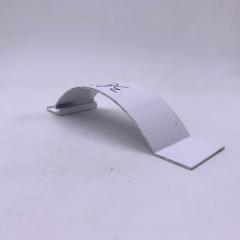
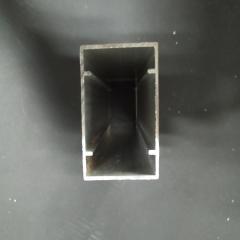
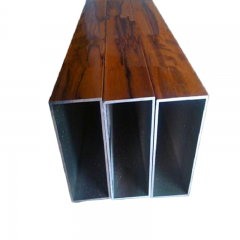
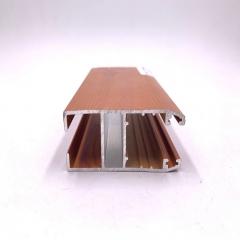
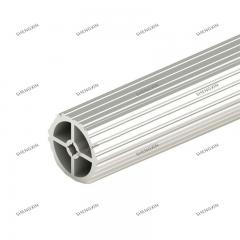
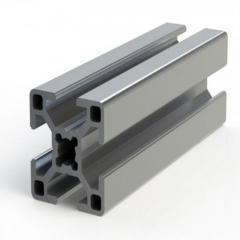
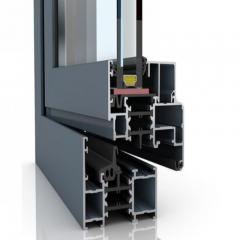
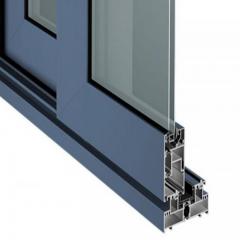
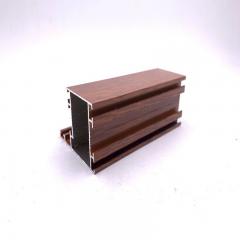
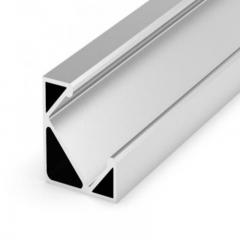
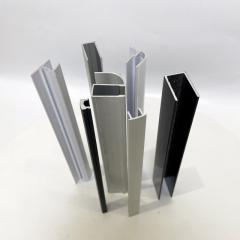
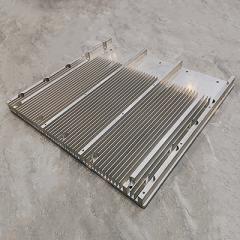
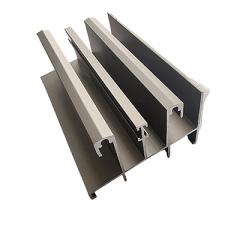
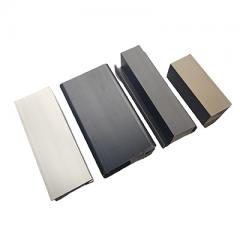
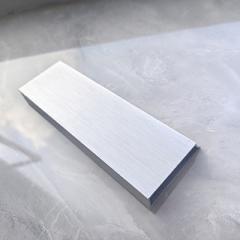
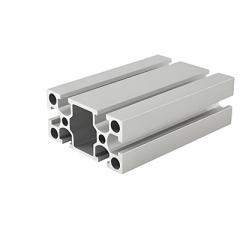
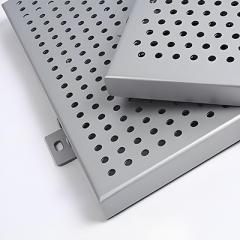
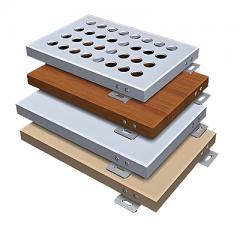

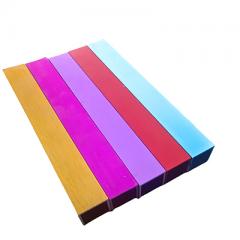
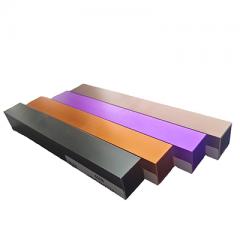
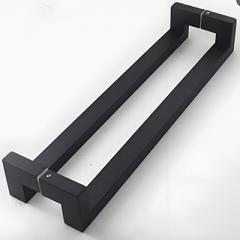

 online service
online service

